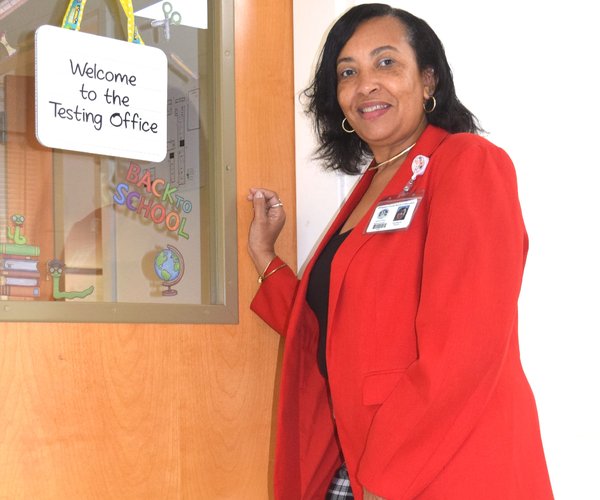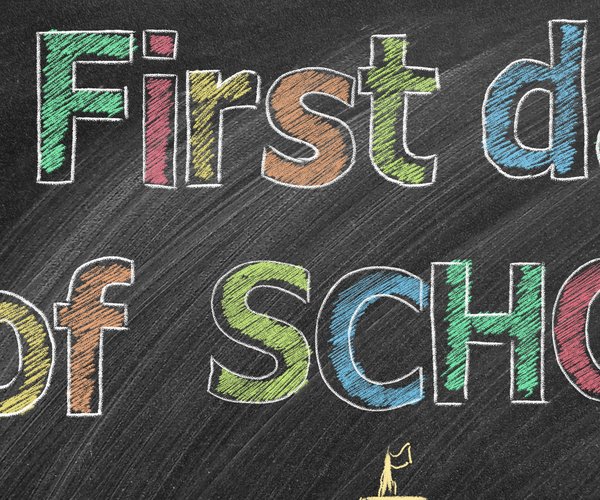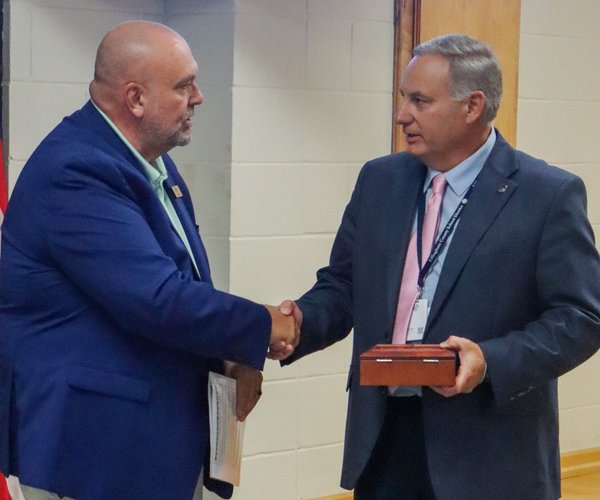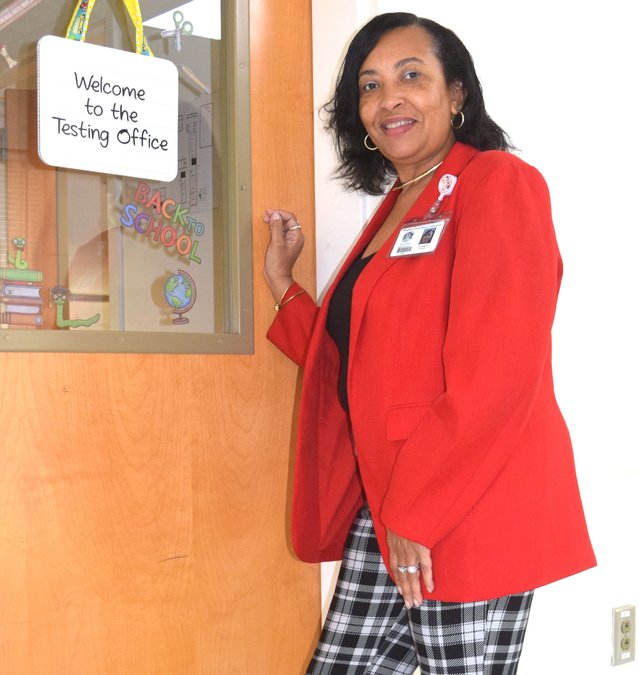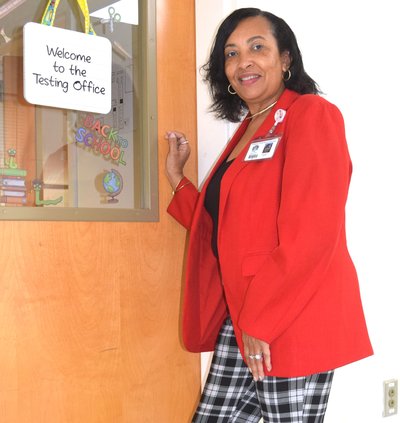Effingham County High School has been awarded a $1,500 grant that will help pay for the training to add advanced placement classes at the school.
The grant is sponsored by the Department of Education, and ECHS and South Effingham High School have received funds in previous years. The grant is designed to train teachers to teach an AP course that has not been taught in the schools before, said Judith Shuman, professional learning coordinator for the school system.
The purpose of the grant is to broaden AP offerings in high schools, Shuman said. The high schools apply for it based on the possibility of the students being interested in a course and having a teacher who is willing to teach the course.
ECHS Curriculum Coordinator Missy Akins said the school is trying to expand its advanced placement program.
“For the first time at our school we’ll be offering AP psychology, so the grant is paying for the teacher to be trained this summer,” she said. “We want to offer AP statistics — I don’t think that’s going to make next year — and we’ll be sending someone to be trained in AP environmental science.”
Akins said the number of students enrolled in advanced placement courses has grown.
“I think part of that is due to the AP night that we hosted, and that was a huge success,” she said. “Parents and students, as they learn more about it, they’re becoming more interested in our advanced placement courses.”
Shuman said both high schools have done similar informational events to let students and parents know about the offered courses and the benefit of taking the courses.
After taking the PSAT, students were given notice — based on their scores — that they would be good candidates for certain AP courses.
“Then they came to the school for AP night to hear folks here at the school talk about what AP is like and the advantages,” Shuman said, “but also to hear some recruiters from places like (the University of Georgia) talk about why taking AP courses is important, so the enrollment has increased at both schools.
Akins said they look to see if there is enough student interest in a course before choosing a program to offer teachers who are interested in teaching that subject. With AP psychology, the teacher talked with the students and explained what the course was to gauge how much interest there would be.
“She ended up with 32 students who signed up and were really excited,” Akins said. “At that point, we knew then we have to do something, but we have to have the interest before we spend the money on the training and textbooks and things that come afterward. Most of it in the initial phases is word of mouth.”
Akins has participated in the training for teachers and said it is good but also expensive.
“Unfortunately it’s expensive so we can’t send them en masse,” she said. “It’s truly a week long of learning how to teach at a higher level, and it makes quite a difference with the kids. Kids who want to be challenged enjoy that. Teachers have to be on their toes.”
“The (Department of Education) sponsoring these grants allows us to increase that enrollment by funding some very expensive training for the teachers, which is particularly important in current budget times,” Shuman said.
ECHS AP calculus teacher Wendy Fears said the training was beneficial in training the subject matter and in providing a network of other teachers to communicate with. Fears spent a week at the University of Georgia, in training from 8 a.m.-5 p.m. every day. Teachers are divided into course specific groups and in Fears’ section, there were also divided between experienced and less experienced teachers.
“Since I hadn’t taught it, I was an inexperienced teacher,” she said. “It was less stress than it would have been if I were with teachers who had been teaching it for 10 years I would have had a heart attack.”
She said the course reviewed everything she needed to teach, which was helpful because it had been several years from the time she took calculus to the time she trained to teach it.
“It also helps you figure out what is expected,” Fears said, “how complex you need to teach different concepts and different ways you need to teach the concepts because it was different. We didn’t have the graphing calculators when I took it.”
The training also gave Fears a network of people to call upon.
“I know the first year I taught the class, I e-mailed the teacher of the course several times,” she said. “Fortunately, we used the same calculus book, so I could e-mail her and say how much did you focus on this concept.”
Shuman said the training not only helps students who will take advanced placement courses from the teachers, it also helps the other students who have those teachers.
“You begin to think in a way that challenges children that supplies a very rigorous curriculum, and it translates into other classes,” she said, “which might not be designated AP, but those skills and strategies become tools you use in any class you teach.”
After the teachers attend training this summer, ECHS will offer seven advanced placement courses. Students can take calculus, U.S. history, literature/English, two language courses, chemistry, biology and it is planned to have environmental science.
Akins said statistically students who take advanced placement courses perform better in college.
“I think from a parent perspective, if it had not been for the AP program here, I don’t think (my son) would not be as successful as he is being in college,” she said.


